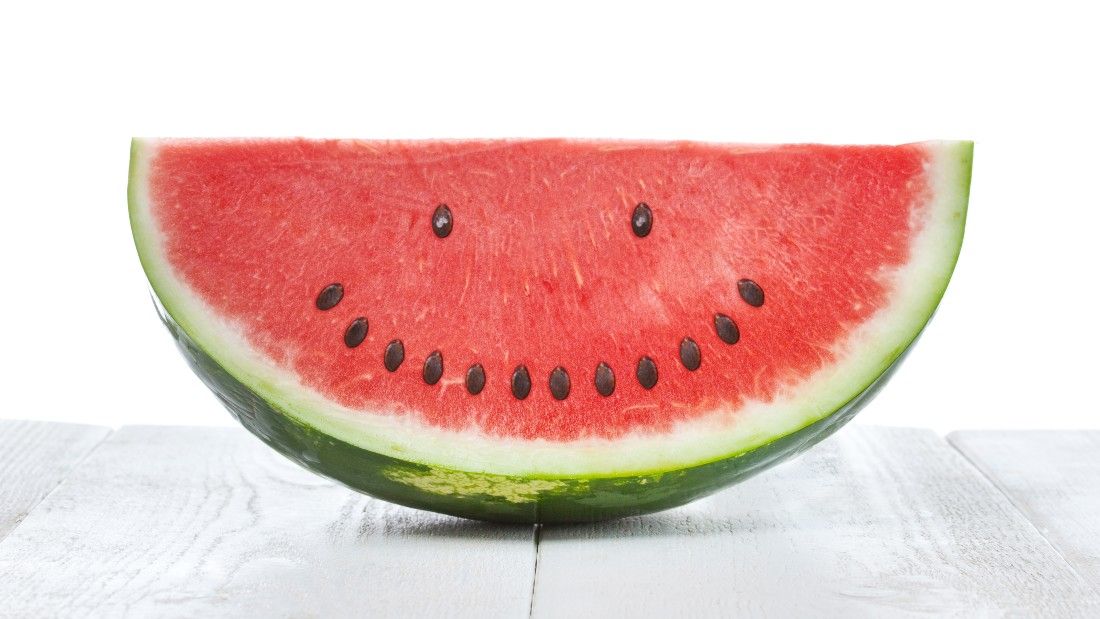4 studies that show plant-based food puts you in a better mood

It’s widely accepted that the foods we eat affect our physical health but we’re often not aware that they can affect our mental health too. What you eat determines what gut bacteria you have in your intestines – some thrive on fibre, some on sugars, others on fats, processed foods or meat. All gut bacteria produce by-products of their metabolism and those tend to be absorbed across the gut wall. All these – bacterial by-products, molecules penetrating through the gut wall and immune system molecules – have a direct effect on your brain and scientists call this communication channel the gut-brain axis. It affects the production of communication molecules in the brain called neurotransmitters.
Some neurotransmitters, such as serotonin or dopamine, make you feel good and you can increase their production with food. On the other hand, the wrong kinds of food hinder their production and can make you feel miserable. The following four studies looked at how different diets affect mood and offer some very useful guidance.
1. Restriction of meat, fish and poultry in omnivores improves mood
Two American scientists conducted some very interesting and original research – they put a group of 39 meat-eaters on various diets and recorded the effects of the diets on the mood of the participants. The three diets they tested were: vegetarian, pescetarian (consuming fish but not meat) and a diet containing meat and fish. The participants completed questionnaires about their mood, stress and anxiety levels and kept a food diary.
The results showed that while mood scores didn’t change for participants who ate meat and fish, mood scores of participants on the vegetarian diet improved significantly after just two weeks. The authors suggested that meat-based diets can have this effect because they are high in a fatty acid called arachidonic acid. And it’s been shown that high intakes promote changes in the brain that can negatively affect mood. While it was expected that replacing meat with fish in the pescetarian group might have some positive effect, the results didn’t show any mood improvement.
Beezhold, B.L., Johnston, C.S., 2012. Restriction of meat, fish, and poultry in omnivores improves mood: a pilot randomized controlled trial. Nutrition Journal. 11 (9).
2. Fruit and vegetable consumption and depressive symptoms
There are many different factors linked to depression and diet can be one of them. A Peruvian study investigated whether fruit and vegetable consumption can affect our mental wellbeing and if there’s a relationship between how much we eat and how likely we are to have depressive symptoms.
The results, from over 25,000 people from across the country, showed that those consuming the most fruit and/or vegetables had significantly less depressive symptoms than those who ate the least. When analysed separately, the association was stronger with fruits than vegetables but both had a strong positive effect on mental health. People eating the least were more than 80 per cent more likely to experience depressive symptoms!
Wolniczak I et al., 2017. Fruits and vegetables consumption and depressive symptoms: A population-based study in Peru. PLoS One. 12 (10) e0186379.
3. A high polyphenol diet improves psychological wellbeing
Links between depression and disease are well established in adults. Depression is often observed in people with vascular diseases, such as high blood pressure, circulatory disorders and heart disease. This study looked at the effects of plant compounds called polyphenols on mental health status in 99 adults aged 40 to 65 with mild high blood pressure. These health-promoting compounds are found in fruit, vegetables, tea, coffee, red wine, fruit juice, seeds, nuts and dark chocolate. Results showed those who ate six portions of fruit and veg (including berries) and some dark chocolate every day for eight weeks had fewer depressive symptoms and better general mental and physical health compared to those who ate two or less portions of fruit and veg and no chocolate.
Kontogianni MD, Vijayakumar A, Rooney C et al. 2020. A high polyphenol diet improves psychological well-being: the polyphenol intervention trial (PPhIT). Nutrients. 12 (8) 2445.
4. The association between vegan, vegetarian and omnivore diet quality and depressive symptoms in adults
This Australian study explored the links between diet and depression in 129 meat-eaters, 151 vegetarians and 216 vegans. It found that high-quality, plant-based diets resulted in a lower risk of depressive symptoms and that this effect was highest among the vegan participants.
Poor quality, processed, high-sugar and high-fat foods are associated with inflammation, which is linked to a higher risk of depression. On the other hand, fruit, vegetables, nuts, seeds, pulses and wholegrains – staples of a healthy vegan diet – are rich in antioxidants and polyphenols, which may lower the risk of depression. Vitamin B12 and omega-3s, they say, are also important.
Walsh H, Lee M and Best T. 2023. The Association between Vegan, Vegetarian, and Omnivore Diet Quality and Depressive Symptoms in Adults: A Cross-Sectional Study. International Journal of Environmental Research and Public Health. 20 (4) 3258.
Eating a wholesome plant-based diet, together with some physical activity, can work wonders for your mental health. It may take a few days for you to start feeling the effects of a gut-brain friendly diet but the more healthy the choices you make, the more you’ll feel your body and mind responding over time.
It is also important to remember that many factors affect our mental health, and diet is just one of them. While diet may go some way to alleviating symptoms, it is important to speak to a mental health professional if you are suffering from depression or any kind of mood disorder.







